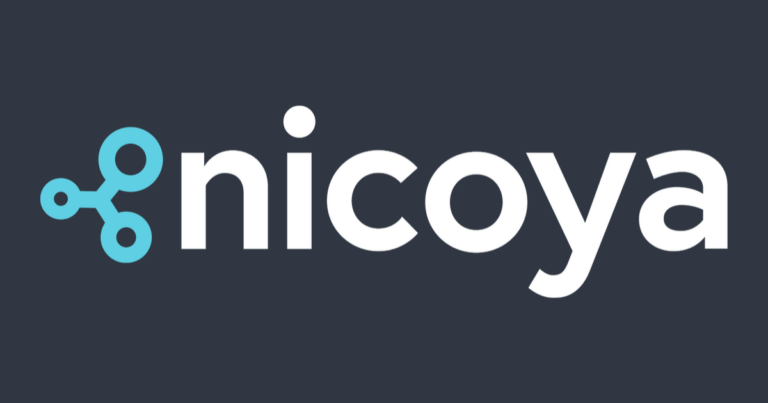EMD Serono, the healthcare business of Merck KGaA, Darmstadt, Germany, in the U.S. and Canada, today announced updated long-term results from the global Phase 3 MANEUVER trial, evaluating pimicotinib, an investigational colony stimulating factor-1 receptor (CSF-1R) inhibitor, for the treatment of patients with tenosynovial giant cell tumor (TGCT). The trial, conducted by Abbisko Therapeutics Co., Ltd., continues to demonstrate the strong potential of pimicotinib as a best-in-class systemic therapy for this rare, progressive, and often debilitating disease.
The latest data, presented during the Sarcoma mini-oral session at the European Society for Medical Oncology (ESMO) Congress 2025 (Presentation #2690MO), reveal that with a median follow-up of 14.3 months, the objective response rate (ORR) by blinded independent review committee (BICR) per RECIST v1.1 increased to 76.2% (95% CI: 63.8, 86.0) — up from 54% at Week 25 in the earlier readout. The study also confirmed sustained and deepening tumor responses, alongside clinically meaningful improvements in patient-reported pain, stiffness, range of motion, and physical function.
Durable Tumor Response and Meaningful Clinical Benefits
The MANEUVER Phase 3 trial enrolled patients with symptomatic, advanced TGCT who were not amenable to surgery. TGCT, a rare and benign but locally aggressive tumor of the synovium, can cause chronic pain, stiffness, swelling, and limited mobility, significantly affecting quality of life.
At the 14.3-month follow-up, results demonstrated continued improvement across multiple clinical endpoints, underscoring pimicotinib’s durable and functional impact:
- ORR per BIRC (RECIST v1.1): 76.2% (95% CI: 63.8, 86.0), increased from 54% at Week 25
- ORR per BIRC (Tumor Volume Score, TVS): 74.6% (95% CI: 62.1, 84.7), increased from 61.9% at Week 25
- Duration of response: Median not yet reached (range: 0.03–19.81 months)
- Tumor reduction: 93.7% of pimicotinib-treated patients experienced measurable tumor shrinkage by BIRC per RECIST v1.1
Importantly, patients reported continued functional improvement and symptom relief with extended treatment duration. Mean changes from baseline demonstrated notable improvement across key quality-of-life metrics:
- Range of Motion: Mean relative increase of 23.9%, compared to 15.6% at Week 25
- Physical Function (PROMIS-PF): Sustained and clinically meaningful gains
- Pain and Stiffness Scores: Continued reductions in both Brief Pain Inventory and Worst Stiffness Numeric Rating scales
These improvements persisted through Week 73, indicating that benefits from pimicotinib not only endure but continue to deepen over time, significantly enhancing patients’ ability to engage in daily activities.
Expert Perspectives on Long-Term Efficacy and Patient Outcomes
“With the initial MANEUVER data presented earlier this year at ASCO, pimicotinib already achieved the highest objective response rate ever seen in a Phase 3 systemic therapy for TGCT,”
said Prof. Niu Xiaohui, Director of the Bone and Soft Tissue Tumor Diagnosis and Research Centre at Beijing Jishuitan Hospital.
“These longer-term findings are even more encouraging — responses not only persist but deepen over time. Equally important, we’re seeing continued improvements in symptoms like pain and stiffness, which are key to patients’ daily functioning and independence.”
He added that these data strongly suggest pimicotinib’s potential to become the leading systemic therapy for TGCT, offering durable efficacy with a favorable safety profile.
From a patient advocacy perspective, the results also resonate deeply within the TGCT community.
“TGCT doesn’t just cause pain — it disrupts people’s ability to live their lives,”
said Sydney Stern, PhD, MS, of TGCT Support, a program of the Life Raft Group.
“Patients want more than tumor shrinkage; they want to move without pain, work, and spend time with their families. Treatments like pimicotinib that restore mobility and reduce daily discomfort are life-changing. They give patients back the freedom to be themselves again.”
Consistent and Manageable Safety Profile
At longer-term follow-up, pimicotinib maintained a consistent and manageable safety profile.
No new safety signals were identified, and no evidence of cholestatic hepatotoxicity, drug-induced liver injury, or skin/hair hypopigmentation was observed.
The majority of treatment-emergent adverse events were mild or moderate in severity and manageable with standard clinical care, aligning with previous Phase 2 and early Phase 3 findings.
For patients originally randomized to placebo in Part 1 of the trial who later crossed over to pimicotinib (n=31), outcomes were similarly positive. After a median of 8.5 months of pimicotinib therapy, these patients achieved ORRs of 64.5% both by BIRC per RECIST v1.1 and by TVS, confirming robust efficacy even after delayed initiation of treatment.
A Promising Step Toward Transforming TGCT Care
“These long-term data reinforce pimicotinib’s potential to transform the treatment paradigm for TGCT,”
said Dr. Victoria Zazulina, Head of Development Unit, Oncology, for the Healthcare business of Merck KGaA, Darmstadt, Germany.
“This therapy is not only achieving significant and sustained tumor shrinkage but also helping patients regain physical function and live with less pain. These are meaningful outcomes that go beyond traditional endpoints.”
Dr. Zazulina emphasized that the global scope of the MANEUVER trial, spanning North America, Europe, and China, supports a broad understanding of pimicotinib’s performance across diverse populations.
“We are actively engaging with regulatory authorities worldwide,” she added, “to ensure that we can bring this important new treatment option to patients as soon as possible.”
Global Regulatory Progress and Next Steps
Abbisko Therapeutics, developer of pimicotinib, has already achieved key regulatory milestones.
The China National Medical Products Administration (NMPA) has formally accepted the marketing authorization application for pimicotinib as a Class 1 innovative drug for adult patients with TGCT.
Further regulatory submissions are planned in the United States, Europe, and additional markets, underscoring the therapy’s global significance and potential impact on clinical practice.
About Tenosynovial Giant Cell Tumor (TGCT)
TGCT is a rare, typically non-malignant tumor that originates in the synovial lining of joints, bursae, or tendon sheaths. Though benign, it can cause chronic pain, joint damage, and reduced mobility, often leading to significant physical and emotional burden.
Surgical removal remains the primary treatment, but recurrence rates are high, and many patients eventually require systemic therapy to manage symptoms and prevent disease progression.
About Pimicotinib
Pimicotinib is an investigational, highly selective CSF-1R inhibitor that targets the biological pathway responsible for the proliferation of macrophages that drive TGCT tumor growth. By blocking CSF-1R signaling, pimicotinib aims to reduce tumor volume, relieve symptoms, and preserve joint function.



